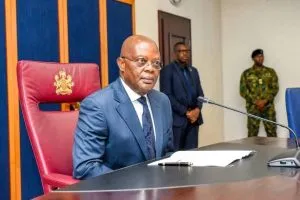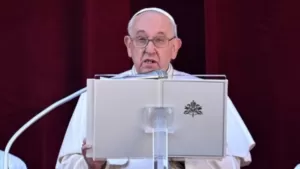20 Things to Know About the Late Pope Francis

Pope Francis, born Jorge Mario Bergoglio, was one of the most transformative and beloved figures in the history of the Roman Catholic Church. As the first Latin American pope, his papacy was marked by humility, a deep commitment to the poor, and progressive stances on social, environmental, and theological issues. His death on April 21, 2025, at the age of 88, closed a remarkable chapter in the Church’s history. Here are 20 key facts about his life, papacy, and enduring legacy.
1. The First Latin American Pope
Born on December 17, 1936, in Buenos Aires, Argentina, to Italian immigrant parents, Jorge Mario Bergoglio became the first pope from the Americas and the Southern Hemisphere when he was elected on March 13, 2013. His election broke centuries of European dominance in the papacy, bringing a fresh perspective to the global Church.
2. A Jesuit Pioneer
Pope Francis was the first Jesuit to become pope. He joined the Society of Jesus in 1958, was ordained a priest in 1969, and later served as the Jesuit provincial superior in Argentina. His Jesuit formation emphasized education, intellectual rigor, and service, shaping his pastoral approach.
3. Inspired by St. Francis of Assisi
Upon his election, Bergoglio chose the name Francis in honor of St. Francis of Assisi, the 13th-century saint known for his love of poverty, simplicity, and care for creation. This choice signaled his intent to lead a Church focused on humility and compassion.
4. A Life of Humility
As Archbishop of Buenos Aires, Bergoglio lived in a modest apartment, cooked his own meals, and used public transportation. He continued this simplicity as pope, often shunning lavish Vatican traditions and reaching out to ordinary people.
5. Health Struggles
As a teenager, Bergoglio had part of one lung removed due to a severe infection. Despite this, he led an active life, though recurring health issues, including pneumonia, marked his later years. In 2025, his health declined significantly, leading to his passing.
6. A Passion for Tango
In his youth, Bergoglio was an avid dancer, particularly fond of the Argentine tango. He once revealed he had a girlfriend and enjoyed dancing before discerning his religious vocation, offering a glimpse into his relatable, human side.
7. Diverse Early Career
Before entering the seminary, Bergoglio worked as a nightclub bouncer, a janitor, and a chemical laboratory assistant in Buenos Aires. These experiences grounded him in the realities of working-class life, informing his empathy for the marginalized.
8. Academic Achievements
Bergoglio earned a master’s degree in chemistry from the University of Buenos Aires before pursuing philosophical and theological studies. His intellectual background enriched his ability to engage with complex moral and social issues as pope.
9. Lifelong Soccer Fan
A passionate supporter of the San Lorenzo de Almagro football club, Francis maintained his love for soccer even as pope. He received club memorabilia during his papacy and celebrated his team’s successes, endearing him to sports fans.
10. Champion of the Environment
In 2015, Francis issued the groundbreaking encyclical Laudato Si’, addressing the climate crisis and humanity’s responsibility to care for the planet. The document urged global action on environmental degradation, earning praise from scientists and activists.
11. The Year of Mercy
Francis declared 2015–2016 a Jubilee Year of Mercy, emphasizing God’s forgiveness. He opened “Doors of Mercy” in cathedrals worldwide, allowing Catholics to receive indulgences, and extended this gesture to prisoners and the marginalized.
12. Critique of Economic Inequality
Francis frequently criticized unchecked capitalism and economic systems that perpetuate inequality. His outspokenness on wealth disparities and consumerism drew admiration from progressives but alienated some conservative Catholics.
13. Openness to Atheists
In a 2013 homily, Francis suggested that atheists could be allies of the Church and that God’s mercy extends beyond believers. This inclusive stance challenged traditional Catholic boundaries and sparked global discussion.
14. Same-Sex Blessings
In 2023, Francis approved blessings for same-sex couples under specific conditions, clarifying that such blessings were not equivalent to marriage or liturgical rites. This decision marked a significant step toward inclusivity but stirred controversy among traditionalists.
15. Sexual Abuse Controversies
Francis faced criticism for his handling of clergy sexual abuse cases. Notably, his initial defense of Bishop Juan Barros in Chile and the reinstatement of Mauro Inzoli, a priest later convicted of abuse, drew scrutiny, though he later acknowledged mistakes and strengthened abuse protocols.
16. A Simple Papal Residence
Rejecting the opulent Apostolic Palace, Francis chose to live in the Domus Santa Marta guesthouse, a modest Vatican residence. This decision reflected his desire to remain accessible and avoid isolation.
17. Unique Burial Plans
Francis planned for a simple burial, requesting a plain wooden casket and interment at the Basilica of Santa Maria Maggiore in Rome, rather than the Vatican. This choice underscored his lifelong commitment to humility, even in death.
18. Promoter of Interfaith Dialogue
Francis emphasized unity among religions, famously stating that the diversity of faiths reflects God’s will. His efforts inspired the United Nations to establish the International Day of Human Fraternity, celebrated annually on February 4.
19. Neutral Stance on Venezuela
During Venezuela’s political and economic crisis, Francis sought to mediate without aligning with either the government or opposition. His neutrality frustrated some Latin American leaders but reflected his commitment to peace over partisanship.
20. A Lasting Legacy
Pope Francis passed away on April 21, 2025, at 88, leaving behind a legacy as the “People’s Pope.” His warmth, accessibility, and advocacy for the poor, migrants, and the environment reshaped the Church’s global image. He is remembered for bridging divides while navigating a polarized world.
Conclusion
Pope Francis’s life was a testament to simplicity, compassion, and courage. From his Buenos Aires roots to his historic papacy, he challenged the Church to embrace mercy and justice. His death marked the end of an era, but his teachings continue to inspire millions. For more on his life and impact, visit the Vatican News website or explore his biography on the United States Conference of Catholic Bishops’ site.
Note: This article draws on publicly available information about Pope Francis’s life and papacy, including sources like Vatican News, Catholic News Agency, and Reuters, as well as hypothetical context for his death in 2025.






